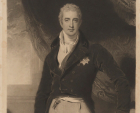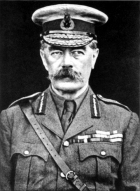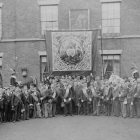Britain & Ireland
What was it about industrialisation that led to the emergence of a woman’s movement in Victorian Britain? Why do we see so many people fighting for so many rights and liberties in this period and what are the origins of some of the issues we still campaign on today? This section includes our major series on Social and Political Change in the UK from 1800 to the present day. There are also articles and podcasts on the often violent relationship between England and Ireland during this period and England’s changing relationship with Scotland and Wales. Read more
Sort by:
Date (Newest first) | Title A-Z
Show:
All |
Articles |
Podcasts |
Multipage Articles
-

The development of the Department of Health
ArticleClick to view -

The great Liberal landslide: the 1906 General Election in perspective
ArticleClick to view -

The history of bigamy
ArticleClick to view -

The ideological contribution of 'The Times' in favour of motherhood in Great Britain between 1910–1920
ArticleClick to view -

The last days of Lord Londonderry
ArticleClick to view -

The mechanical heroes of the Battle of Britain
ArticleClick to view -

The price of reform: the people's budget and the present trauma
ArticleClick to view -

The secret diaries of William Wilberforce
ArticleClick to view -

The shortest war in history: The Anglo-Zanzibar War of 1896
ArticleClick to view -

The snobbery of chronology: In defence of the generals on the Western Front
ArticleClick to view -

The world in 1913: friendly societies
ArticleClick to view -

The ‘workless workers’ and the Waterbury watch
ArticleClick to view -

Thomas Muir and the 'Scottish Martyrs' of the 1790s
ArticleClick to view -

Tony Blair, the Iraq War, and a sense of history
ArticleClick to view -

Tourism: the birth and death of the little Welsh town?
ArticleClick to view -

Towards Reform in 1809
ArticleClick to view -

Twickenham as a Patriotic Town
ArticleClick to view -

Two Babies That Could Have Changed World History
ArticleClick to view -

Virtual Branch Recording: Vagabonds versus the Mendicity Society
ArticleClick to view -

Virtual Branch Recording: Writing Black histories, telling Black stories
ArticleClick to view

